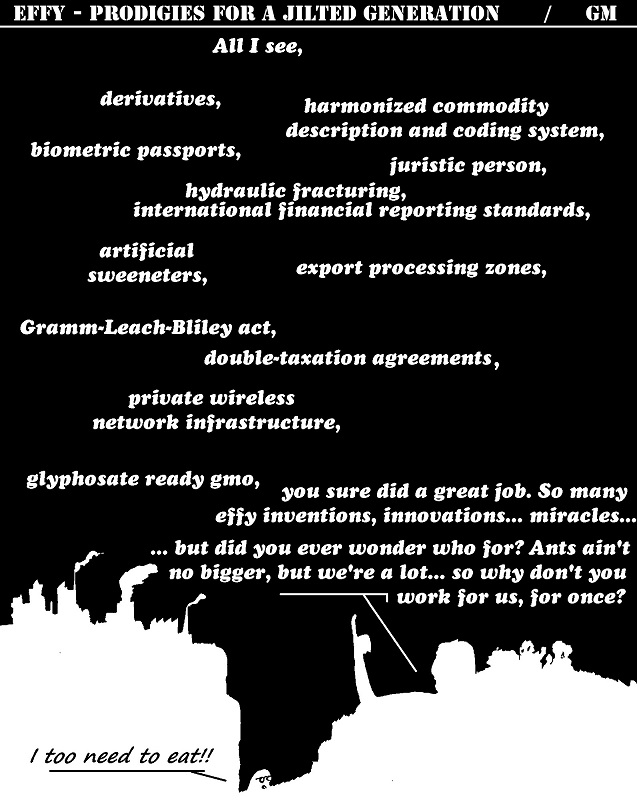This week, Effy investigates innovation. As we covered before, innovative solutions can be a source of efficiency, providing new alternatives. The more alternatives you have, the more likely it is to find an optimal solution that will lead to improved efficiency.
Sources of innovation
Overall sources
- A sharp increase of booming talents (world population drastic increase as seen in bio-synergy part one & part two),
- A wider source of universal and accessible knowledge (gigantic databases to identify trend from),
- Powerful tools (acceleration of technological progress).
Within an entity
Innovations are still hard to unearth, that’s what make them innovative. As a result, organizations often sets an incubation pole, in order to nurture and develop innovations. It might be limited to a lab center or R&D department, but some organization use the full spectrum of their structure to develop a culture of innovations. 3M has for long time been the text book example of that (Harvard Business Review example here), a company in which innovations is valued and promoted vertically at all level, and horizontally for all matters. Other organizations develop an innovating environment providing the fertile ground for innovations (a good article about innovation drivers from New and Improved). The purpose of such structure is to develop an innovating environment that will help creative approach.
Valuable innovations?
A quick browse on internet about top ten innovations of all time (National Geographic one here for example, and the Famous Inventors one here), and wheel, electricity, vaccine, printing press or internet will pop-out. That’s an optimistic rewriting of history. Innovations are not always meant for the universal good. It’s actually the opposite most often that not. A quick look at the patent registry will tell you that innovations are generally aiming at benefiting a limited group. The invention of a patent registry was in itself for the benefit of a limited group (inventors). This is not a moral judgement, just a factual statement. To break it down even further, some are genuine improvements for that particular group that do not impact other groups. However, most often, these innovations are against other groups.
The Block-Chain example
Let’s take “block chain” to further illustrate my point (a quick history article from 101BlockChains and another one from Forbes). The original innovation secure transaction in an innovative way. It was an open resource, perfected by an anonymous person. At that point, the innovation was just a tool, free for the benefit of most. Various entities are now using that block of innovation to develop their own services. Among the earliest and most famous, BitCoin, which was mainly aiming at benefiting the limited group of tech savvy people that wish to stay away from banks and transaction supervision. Now, entities such as banks and states that tryied their best to ban access to this technology, use it to develop their own offer (crypto-currency, contract management applications, comics exchange platforms and so on); with the objective to reduce processing costs and replace cash. Working for a company developing such solutions, this is the real sales pitch: Reduce costs, replace cash. This objective is mostly detrimental to users and staff, but most innovations based on block-chain are of this nature.
I mean… remember when internet was anarchy?
So in the end, innovations are landmark universal gains for all, carrying countless tiny ones that are detrimental for most and benefiting a few. Which one overweight the other? It’s hard to say and matter very little in the end, because it’s what we call progress, and you can’t really fight the future.
But why is it that inventive prodigies agree to that?
Effy said it loud and clear, because innovators need to eat. That’s why they invented patent registry too. As sad as it is, there’s nothing to gain in universal benefit, mostly troubles. So innovations often work hand in hand with financial efficiency.
G.M.
PS: For curious ones, this episode was directly inspired by The Prodigy‘s Music For The Jilted Generation artwork (official band website). And as the band demonstrated, real prodigies often struggle to sell-out genial instinct for economic benefits. I also compiled a list of innovations that clearly were genius in their concept, yet clearly targeting at the benefit of the few against the mass…


[…] 30 – Prodigies for a jilted generation […]